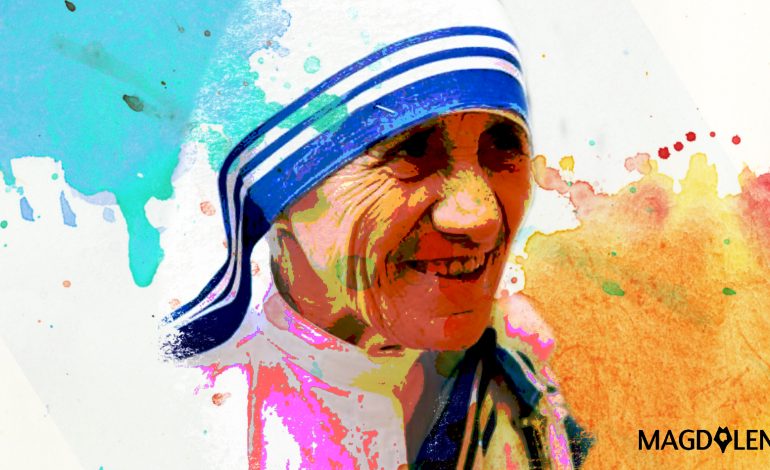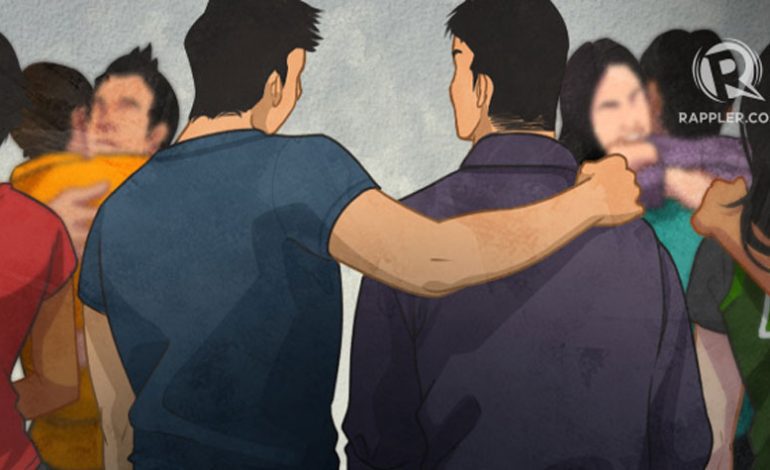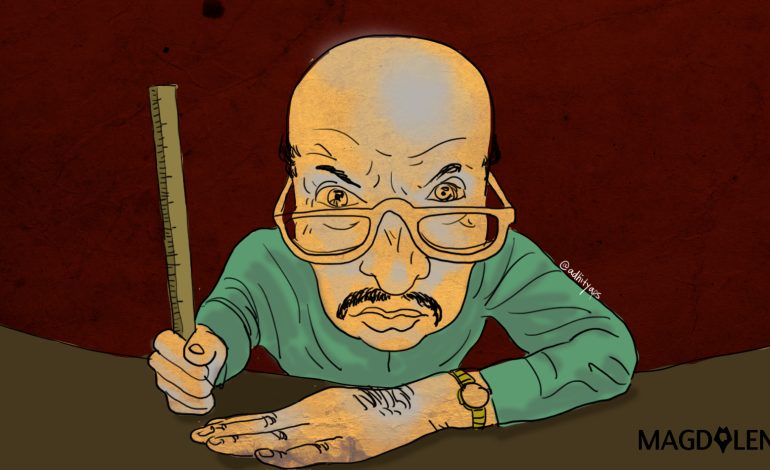Mother Teresa and the Question of Faith

Mother Teresa, the famous nun, has become a saint last week (4 September 2016). My parents complained that her sainthood ceremony was not broadcast live on CNN or BBC, but luckily Fox News covered it.
I know why Fox News did a live broadcast from Rome, and inwardly laughed that thing about us Catholics – our big news has to be the world’s big news. American Catholics would feel that Fox News really understood them and respected them on that day.
A regular Catholic could recite several facts on Mother Teresa. She was Albanian, and her birth name was Agnes. She joined a Catholic order and was posted in India. There she became a nun and adopted the name Teresa, based on the French saint Therese de Lisieux. Appalled by the poverty in Kolkata (then Calcutta), she changed her wardrobe into a simple cotton sari with blue border to blend in, and adopted Indian nationality.
She began caring for the poor and the sick with blessings from the Indian government and the Vatican. Without medical qualification, what important for her was the chance for the Kolkatan poor to die with dignity according to their faiths. Her Missionaries of Charity became world famous and she was awarded the 1979 Nobel Peace Prize. “Mother” is her title as the leader of the order. She died just days after Princess Diana, and the world mourned the passing of the two international humanists.
She was the most famous nun in the world and it was common for Catholic teenagers to contrast their stern and authoritative nuns in school with Mother Teresa. Her quotes and pictures would adorn several PowerPoint presentations in retreats and workshops, in relations to compassion, selflessness, and humility. Most Catholics in Indonesia are not aware of criticisms against her, while holding that some people always pick on Catholics out of jealousy, cynicism, and ignorance.
I was aware of her flaws in school, either when her health was declining in 1996, or soon after her death. It was a personal revelation, as I was wondering why she romanticized poverty. Why she never used her fame and massive treasury to upgrade her facilities in Kolkata and hired qualified doctors and nurses. As a member of the Keluarga Berencana (Family Planning) generation, I was also shocked that she condemned contraception. I was bemused when in 1999 her path to sainthood was opened, as five years should pass first before a deceased Catholic can be nominated (to prevent populist sentiment from taking place).
In university, I read how she exchanged pleasantries with two dictators, Jean-Claude Duvalier of Haiti and Enver Hoxha, who forced Albanians to worship him as a god throughout the Cold War. I followed the controversy when two British writers, Christopher Hitchens and Aroup Chatterjee, published writings condemning her in 2003. Of course, I was aware of Hitchens’ atheist activism and both men were present as hostile witnesses in the Vatican’s investigation on her. She became Blessed Mother Teresa that year, to the joy of my friends. To this day I never raise objection to anyone’s praise on Mother Teresa.
For the last two years, I’ve met several Catholics who are not happy with how things are in the religion. Some state that they are closet atheists. Some say they still go to the church, even playing a part in the service. I no longer go to church, nor meet my church friends. The former out of plain laziness, and the later, maybe, because the others and I have stopped pretending that we got along. Every time I read the Bible, I can’t help thinking that this is a book written thousands of years ago by Middle Easterners according to the context of that time.
Two years ago I thought I could enjoy the church life with my newfound confidence. But perhaps I got disgusted with sexist jokes made by the seniors. Perhaps I disagreed with the condemnations on abortion and divorce. Perhaps I was not comfortable with the judgmental memes. Perhaps my Facebook posts have become so different.
Recently I have been watching discussions among Muslims on the possibility of reconciling Islam with feminism, or building a feminist Muslim discourse. There is Christian feminism, and Christian feminism has contributed to the acceptance of women as priests in several Protestant churches. The only prominent Catholic feminist I know is Teresa Forcades, a Spanish nun, and she is not on friendly terms with the Vatican due to her supports for abortion and the morning-after pill. Her socialism and support for Catalan independence, on the other hand, are welcomed by the Church.
In the end, sometimes I wonder why we Indonesians sweat it so much on religion. Are the Christians just following the Muslims? Is focusing on religion making us forget to focus on ethnicity, and that is one thing that keeps Indonesia peaceful and united? Is the centrality of the church as the living hub for Chinese Christians in Indonesia due to their Christianity, or due to their Chinese culture? Why do Catholics and Protestants in Indonesia, although not hating each other, find it unnatural to socialize with each other? And why does everything we talk has to do with religion?
I respect the feeling of friends and family who were happy with the sainthood of Mother Teresa. I realize the complexities of debate on her in India. Her critics include hardline Hindus, liberals who see her as an epitome of white savior complex, and pundits and politicians with specific interests on politics in Kolkata and India. Indian Catholics worldwide, meanwhile, are proud to have her as an Indian saint.
Personally, I am not impressed with Mother Teresa. Worse, now among American Catholics she is used as the model of the good woman contrasted to Hillary Clinton the bad woman. Catholic women deserve a better role model than Saint Teresa of Calcutta. It would be nice if Christian feminism can be revived in our lifetime.
Read Mario’s take on the Church and homosexuality and follow @mariorustan on Twitter.






















